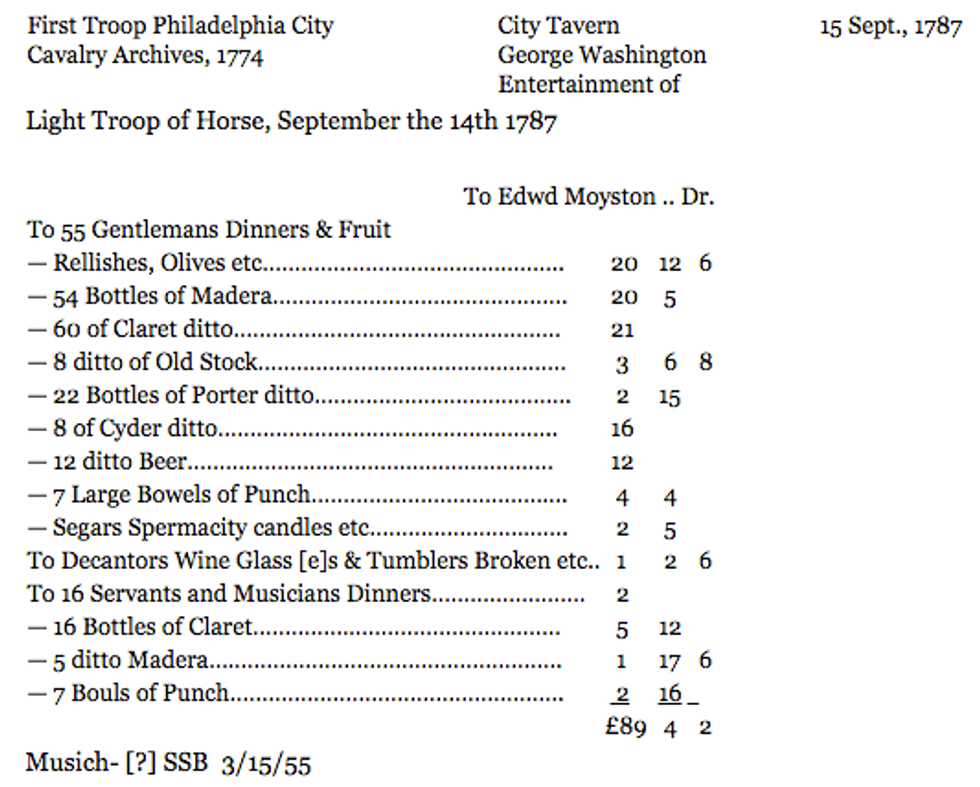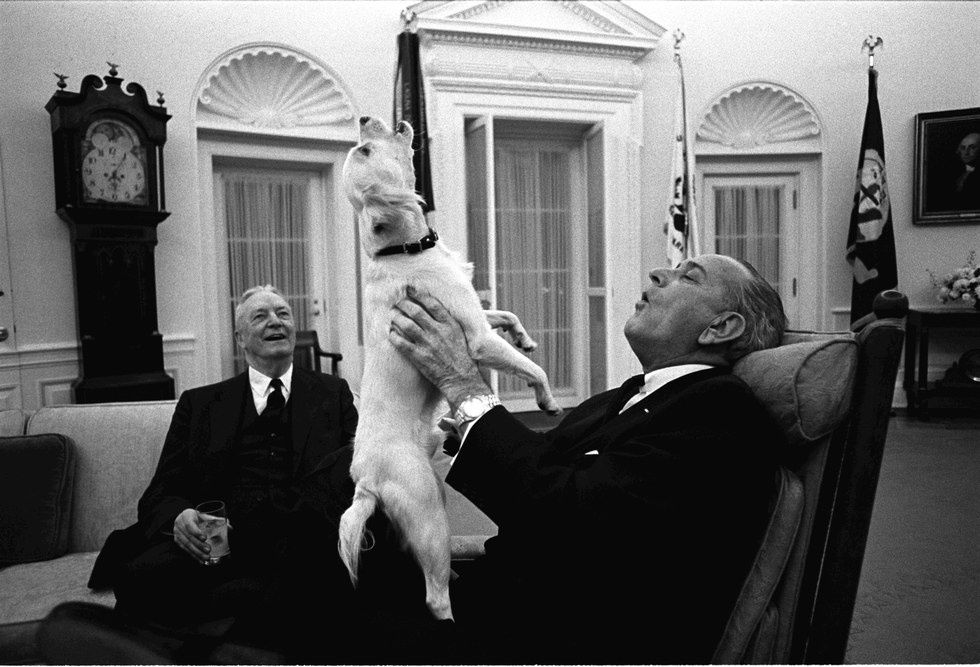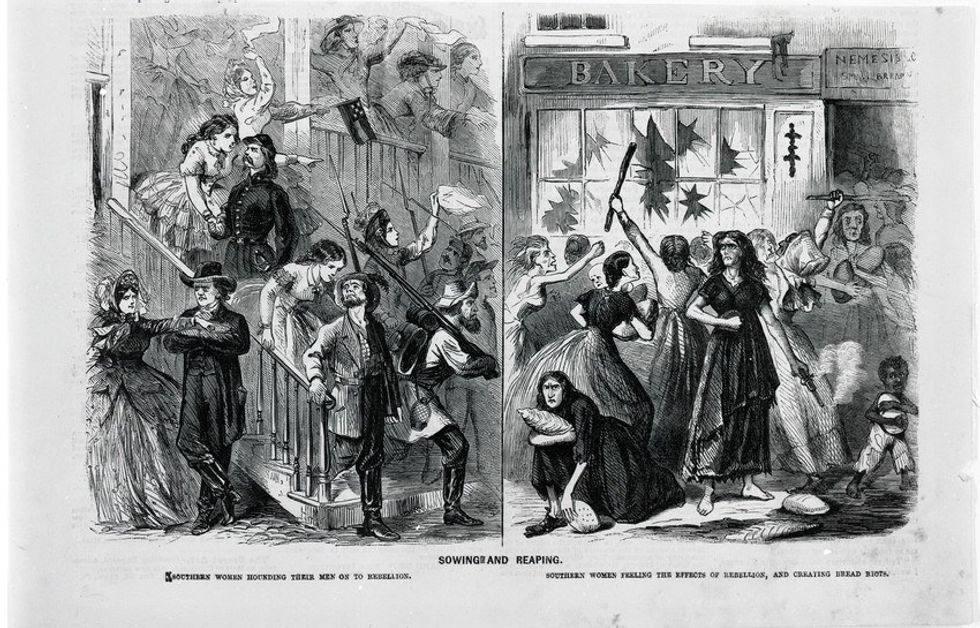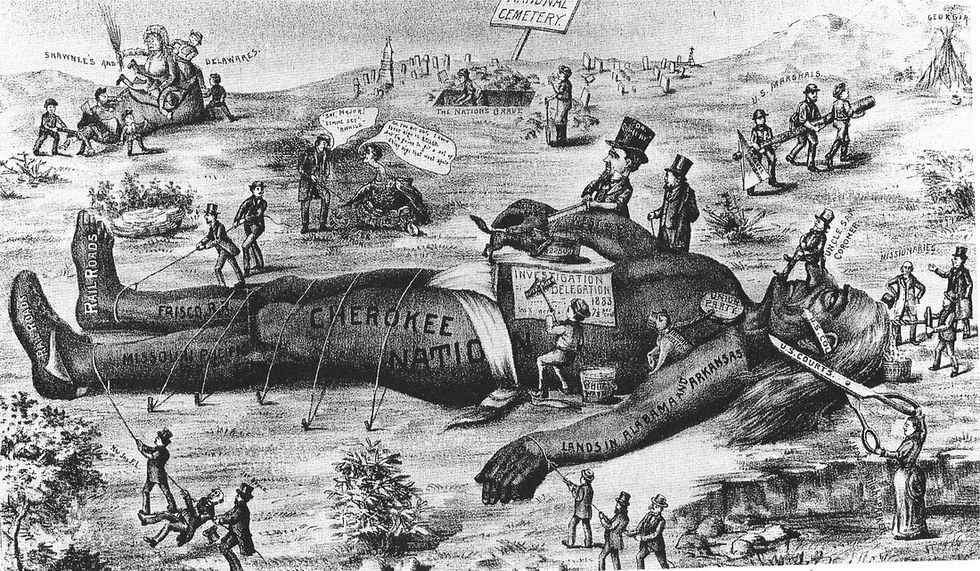From Freedom Hall to the Gettysburg Address, from our numerous war victories to the March on Washington, the United States' backstory only lasts a couple of hundred years, but we hold these years up and hail them with our red, white, and blue-bleeding hearts. But between these history-changing textbook accounts that all of us grew up memorizing, there lies many peculiar and slightly embarrassing tales that many of us are completely unaware of. We always think about the great members of history as stoic, untouchable figures whom worked together to create the society in which we live today, yet we always seem to forget that they were human, too. These are just some of the strange accounts that prove their humanity and remind us that despite all of the time between us, we're not that different.
1. When the half of the population of Kansas thought it would be a good idea to boycott a vote.
Leading up to the Civil War, the balance between 'slave' and 'free' states was crucial. Washington attempted to avoid an outbreak of war by keeping the balance, yet Kansas' title was tricky. Eventually, a small war broke out between the pro and anti-slavery voters, and in the midst of the fighting, Kansas had applied to become a state and needed to decide whether or not they were going to outlaw slavery in their constitution. Attempting to avoid any further disputes between the population, they left it to popular sovereignty and let the population vote. Out of anger, the anti-slavery advocates boycotted the vote, which is never a good idea. They promptly became even more angered when the Constitution passed with the pro-slavery clause, despite the fact that their boycott meant that nobody voted for the anti-slavery clause! This mess of a situation effectively fanned the inevitable Civil War flames, and it was all because almost half of the Kansas population didn't have enough foresight to realize that maybe boycotting a vote isn't such a fantastic idea.
2. How the Founding Fathers TURNED UP after the Constitutional Convention.
After the Articles of Confederation was a bust, 55 men gathered into the stuffy Pennsylvania State House, where they deliberated the foundation of our nation for three months in the thicket of summer. These men were on major crunch time -- the whole nation was waiting for a document that would bind the self-sufficient states into a federal unit, and they needed nine of the 13 completely different colonies to ratify the document. So, who blames them for letting loose a little bit at the local tavern after all of their hard work paid off? The bill from the tavern (picture below) lists 59 bottles of Madeira and 76 bottles of Claret (both wines) and 42 bottles of various kinds of beers, not to mention the part of the bill that lists the reimbursement for the 'Wine Glass[es] and Tumblers Broken.' The total price of this huge party was roughly $7,402.04 in modern USD. What I personally learned from this discovery: George Washington really knew how to party once he let down his powdered hair.
3. When Abigail Adams was forced to shake a dog's paw at the dinner table.
General Charles Lee, a highly trained officer and George Washington's second in command, was highly fond of dogs. His favorite dog, Spada, accompanied him at his dinner with Abigail Adams, where Lee prompted Adams to shake his dog's paw. And, not wanting to upset him, she obliged. Abigail Adams didn't seem to mind too much, for she was very fond of dogs herself: she wrote about her own dog, Juno, saying "If you love me ... you must love my dog." Regardless, it's still hilarious to imagine Abigail Adams dressed in her finest corset and gown, bending over in a classically decorated dining room to shake a Pomeranian's paw.
4. When President Lyndon B. Johnson interrupted interviews to 'sing' with his dog.
President Johnson definitely had strange habits, and one of them was his obsession with his dog, Yuki. Johnson and Yuki were inseparable, and Johnson was known to interrupt interviews and even important government meetings to 'sing' with his dog. It's even said that LBJ would use their show-trick to avoid talking with diplomats whom we wanted to avoid. Despite his odd tradition, it seems that a love for dogs is a common theme throughout American history.
5. How Jefferson Davis was almost beaten up by a mob of hungry women.
Approaching the last stretch of the Civil War, the winter of 1963 was hard-hit by Richmond, VA. Supplies were becoming very tight in the Union and Confederacy alike, and that winter had been harsh -- reports say that there had been 20 snowfalls in Richmond alone. Fed up with such conditions, the Richmond women met and marched to Capitol Square, picking up hundreds of followers along the way. Jefferson Davis attempted to appease the mob by throwing money at them, yet when things took a turn for the worse, he threatened to open fire. This event would go down in history as the Bread Riot, and perhaps was one of the first American accounts of 'hangry.'
6. When the U.S. had plans to nuke the moon.
With the tensions of the Cold War on the rise and the Space Race in full effect, the US was scrambling for insurance that their country would remain safe and emerge as a victor. They already had their elementary school children practicing air-raid drills, but they needed something more to ensure the American population's comfort. In 1958, the Air Force hatched plans to detonate nuclear weapons on the moon to one-up the Soviet's Sputnik and to do further testing on the "...capability of weapons for space warfare." However, the project was abandoned and lost in Pentagon files after fears of tainting the moon's radioactivity with the Earth's. Now the plans are just another crazy story that the US mulled over amidst insane amounts of stress to maintain America's national security.
7. How Andrew Jackson was basically the largest symbol of hypocrisy.
After riding his way to the Oval Office on his hard money policy and the Indian Removal Act, this guy sure went back on his word. Jackson made multiple campaigns against various Native American tribes, and when numerous Supreme Court trials did not achieve such expectations, Jackson was one of the first to take action. Jackson passed the Indian Removal Act and sent thousands of Native Americans on the infamous Trail of Tears. Except despite all of these actions, Jackson adopted two Native American boys during the Creek War (1813-1814). Being orphaned himself, he felt pity for the newly orphaned children, and wrote to his wife "He is a savage that fortune has thrown in my hands." Not only that, but despite his large efforts to maintain America's use of hard money, his face still remains on the twenty dollar bill. Talk about irony.
8. How George Washington's Farewell Address warned us about mostly everything that's occurring in modern politics.
Washington warned against two things: do not form political parties and stay out of foreign affairs. We managed to have a couple 'Era of Good Feelings' throughout American history, where there was little political turmoil and one party held the hearts of most Americans, but for the most part, we forgot about Washington's political party wishes pretty quickly. As for foreign affairs: we stuck with that for longer than his first wish, but then we thought it would be cool to get involved with Hawaii and the Philippines and Mexico and soon enough we were caught up in not only WWI, but WWII and the Cold War. And now here we are, a country divided by political opinions and foreign affairs that our Facebook pages are riddled with political rants and CNN stories about another terrorist attack.
America's history may fuel our patriotic fervor and guide our current debates on the meaning of the constitution and where to apply it, but it's very far from perfect. From time to time, we forget that the outstanding work and infamous shortfalls that our nation has endured was the work done by people just like us, and from generation to generation, it's important to remind ourselves that even our great leaders had their peculiarities, too.

























